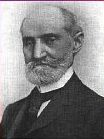Fever
Characteristics _ Adapted to persons of bilious temperament, who suffer from gastro – intestinal derangement, especially after abuse of Mercury, “bilious attacks.”
Pains: sudden attacks of jerking pain.
Depression of spirits, imagines he is going to die or be very ill (Arsenicum), disgust for life.
Headache, alternating with diarrhea (Aloe), headache in winter, diarrhea in summer.
Painless cholera morbus, violent cramps in feet, calves, thighs, watery, painless stools, cholera infantum (Phytolacca).
Difficult dentition: moaning, grinding the teeth at night, head hot and rolling from side to side, intense desire to press the gums together (Phytolacca)
Patient is constantly rubbing and shaking the region of liver with his hands.
Diarrhea: of children, during teething, after eating, while being washed, of dirty water, soaking napkin through (Benz-ac.), early in morning, continues through forenoon, followed by natural stool in the evening (Aloe), and accompanied by sinking or weakness in abdomen and rectum, of long standing.
Stool: green, watery, fetid, profuse (Calcarea), gushing out (Jatro., Phosphorus), chalk – like, jelly – like (Aloe), undigested (Cinchona, Ferrum), yellow, meal – like sediment, prolapse of rectum, before or with stool.
Prolapsus uteri: from overlifting or straining, after parturition. In early months of pregnancy, can lie comfortably only on stomach.
Affects right throat, right ovary, right hypochondrium.
Pain and numbness in right ovary, running down thigh of that side (Lilium).
Suppressed menses in young girls (Pulsatilla, Tuberculinum).
Aggravation: In early morning (Aloe, Nux vomica, Sul.), in hot weather (diarrhea), during dentition.
Amelioration: Evening, external warmth, pressure.
Type: Quotidian, tertian, quartan. Periodicity marked. Morning paroxysm predominates. Bilious, malarial. Intermittent may become bilious, remittent or continued.
Time: 7 A.M., characteristic. Light paroxysms may occur in the evening.
Prodrome: Backache, severe in lumbar region. Gastric and bilious symptoms are marked, sometimes for days before the paroxysm.
Chill: Without thirst, with pressing pains in both hypochondria and dull aching in knees, ankles, elbows and wrists. Feverish during the afternoon, with occasional chilliness, which was not ameliorated by the heat of the stove, but was ameliorated covering up warmly in bed. Great loquacity, consciousness, but cannot talk, because he forgets the words, or tries to talk continually, but forgets the words he wishes to employ (Marum v.). Chilly on first lying down in the evening, with incoherent talking during the imperfect semi – sleep.
Heat: With thirst. The heat begins during the chill, or while he is yet chilly. The shaking and sensation of coldness continue for some time after the heat commences. Violent headache with excessive thirst. Chilliness while moving about and in the act of lying down, with sweat at once. Great loquacity, constantly talking (Carbo vegetabilis, Lachesis), which continues with delirium until fever reaches its climax, when he falls asleep and transpires profusely, with forgetfulness of all he had said (falls asleep during evening fever, and wakes when it stops, Caladium – see Apis, Nux moschata).
Sweat: Profuse sweating, so that it dropped off the finger ends. Warm on head and legs. Sleep during perspiration, ameliorated headache. Bathed in cold perspiration.
Tongue: Coated white, moist, dirty, pappy, pasty, shows imprint of teeth (Mercurius), dry, yellow. Offensive odor of breath, which disgusts him (offensive odor from mouth, not perceptible to himself, Pulsatilla ). Taste foul, total loss of taste, or everything tastes sour. Gastric symptoms predominate.
Apyrexia: Total loss of appetite, even the smell of food produces loathing (Colchicum), offensive breath, foul taste, profuse salivation, eructations smelling like rotten eggs. Constipation or diarrhea.
Analysis: Chill, with aching in hypochondria, knees, ankles, elbows, wrists, great loquacity during semi – sleep.
Heat, thirst, headache, great loquacity, delirium: falls asleep at climax of fever and sweats profusely.
Sweat, profuse, sleeps during perspiration. Gastric symptoms predominate.
The loquacity during chill and far into heat, with complete forgetfulness afterwards of all that had passed, is characteristic. Falls asleep at climax of heat, and sleeps during perspiration resembles Apis, but the urticaria is wanting, and the perspiration is more profuse.

